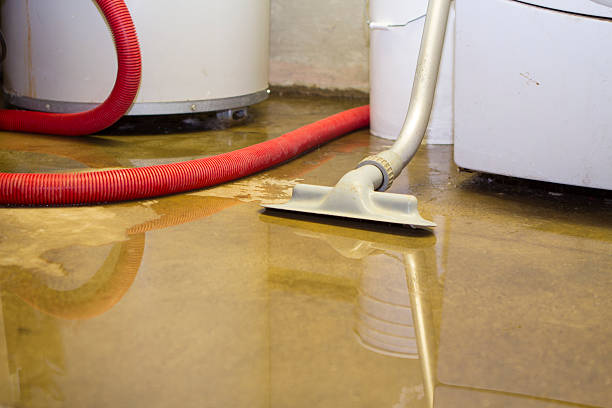Nobody likes to come home to a flooded basement. Nevertheless, it occurs regularly. The carpet gets saturated, the furniture is destroyed, and the area stinks for days, if not weeks. What would you do differently? How do you keep your basement from flooding in the future? This may be a source of tremendous irritation and grief for individuals who live in high-moisture environments.
Don’t worry; we’ve got you prepared with five great tips for basement waterproofing:
1. Grade your lawn correctly.
You are in danger of basement flooding if the yard around your house grades or slopes toward the house rather than away from it. Water needs to go somewhere when it rains. Your grass should be sloped so that rainfall drains away from your walls and toward city streets and gutters. If you take a stroll around your house and discover that your lawn does indeed slope toward your exterior walls, you have a variety of landscaping alternatives to correct this.
2. Leave a gap between your mulch and your siding.
When putting mulch in flower beds and other places around your home, keep a 6 inch or so barrier between the landscaping and your outside walls. This is especially true for siding and other building materials that may not be as water-resistant as a brick.
3. Extend downspouts and make sure they are turned away from your home.
Instead of attaching downspouts to your footer drain or having them stop just above the ground around your property, add some additional material so that the water flows out of the spout further away from the outside perimeter. Make sure to divert it into grass areas graded away from your home so that the water does not just run back and rest against your outer walls.
4. Clean out your gutters in the spring and fall.
Pay attention! In your gutters, Michiganders, leaves, and sticks accumulate. You are placing your property in danger of flooding if you do not clean them out regularly.
During heavy rain, clogged gutters fail to drain properly, causing water to pool right beneath them on the foundation around the outside of your residence.
5. Install a sump pump (and a backup system)
Finally, you could want to invest a little money in prevention to don’t have to spend a lot of money on resolution. Installing an automated sump pump in your basement will help you keep water buildup from regular rains under control and prevent basement flooding. If you’re unfamiliar, Sump pumps function similarly to a significant floor drain, taking any water out of your basement or the surrounding foundation and diverting it elsewhere, out of harm’s way.
Infographic provided by Feldco, home window replacement services


